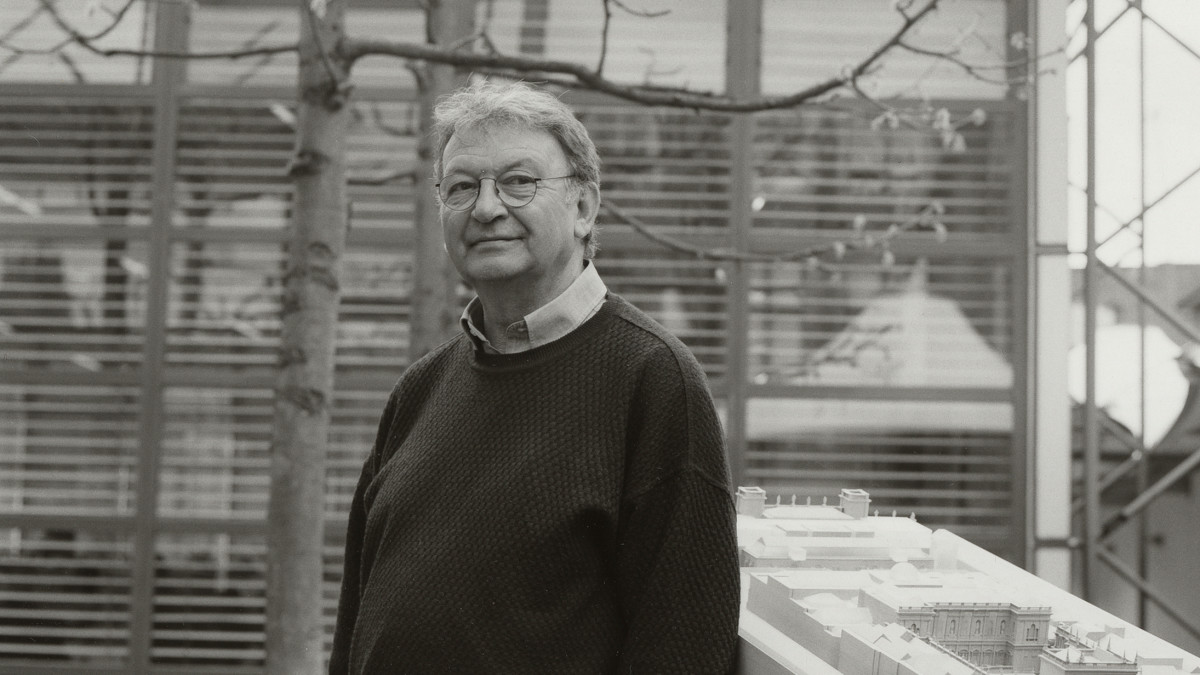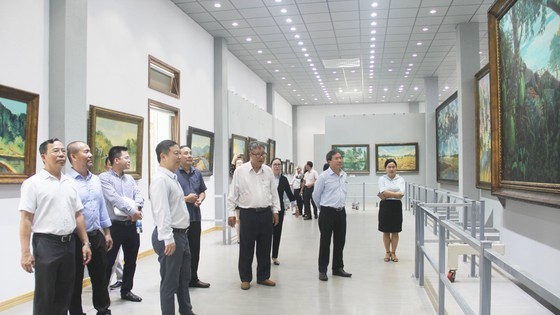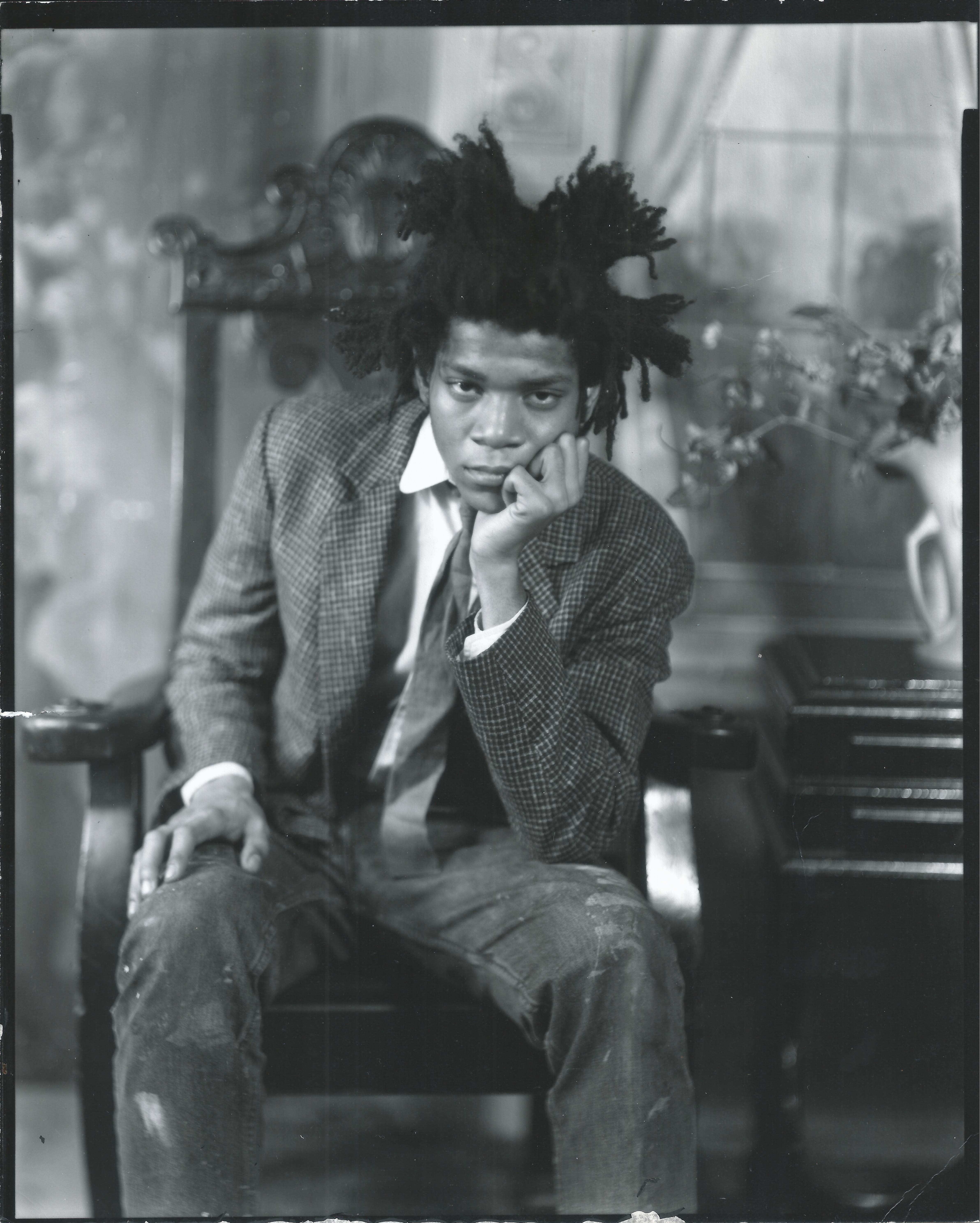Belated Bosal
2019 - Film & Video (Film & Video)
55:00 minutes
Park Chan-Kyong
Park Chan-Kyong’s otherworldly film Belated Bosal primarily follows two women as they navigate their way up a spectral mountain and through what appears to be a history museum or nuclear disaster bunker. They converge to jointly perform a funeral rite in a shipping container, which a group of artisans temporarily convert into a makeshift Buddhist temple, replete with traditional paintings. Shot in crisp and densely detailed black-and-white negative, each frame is lit by the format’s spooky incandescence: shadows are white and the sun is black, as if the world were being viewed through X-ray, infrared camera or a plutonium-sensitive film. Both the imagery of the film as well as its title reference a specific account of the philosopher Siddhartha Gautama’s death (who later became known as the Buddha), as well as the notion of pursuing a path toward enlightenment for the sake of all sentient beings, which is a foundational element of Buddhist faith and philosophy. By situating classical religious ideology and modes of visual representation against and within a frame of impending (or past, or present) disaster, Park seems to point toward the always-already present nature of catastrophe, as well as the possibility of non-dualistic and relativistic logics of Eastern philosophical systems to guide our approach to both scientific development and ecological catastrophe.
Artist and filmmaker Park Chan-kyong was born in Seoul under the reign of Park Chung-hee, whose authoritarian rule transformed South Korea from an impoverished, war-torn country into what the artist describes as a ‘militaristic, repressive, modern state.’ The shadows of Japanese occupation and the Korean War loomed large over the period, driving the call for nationalism and productivity. Park Chan-Kyong’s works quietly resist that drive—they recall the lives that modernization too often ignores. Most of Park Chan-Kyong’s multimedia installations—which incorporate an array of found footage, photography, and vintage cinema—are slow and understated, almost abstract works. But a closer look reveals a shrewd take on Cold War politics and the formation of modern Korea. Rather than using the dramatic power of film to restage the past, Park finds meaning in voids and absences. With a sly use of text and montage, Park resuscitates stories that have been repressed or hidden from the official accounts, reminding us how present they still are.
Colors:
Related works sharing similar palette
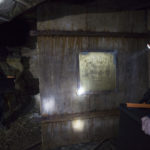
© » ARTS EQUATOR
Migrant Ecologies Project: A Grain of Wheat Inside a Salt Water Crocodile | ArtsEquator Thinking and Talking about Arts and Culture in Southeast Asia Grain of Wheat July 8, 2019 After what seemed like a long walk in silence and darkness into the mountain we came to an almost mythological-looking door with the words ‘Fröhall’ – seed room – written upon it...

© » KADIST
Arseny Zhilyaev
His large installation entitled The Museum of Proletarian Culture (2012) looked at the changes in artistic practice that have occurred in Russia throughout the last thirty years – from the amateur art of the late Soviet era to the commercialized post-Soviet cultural practices and the more recent self-expression via contemporary social networks...
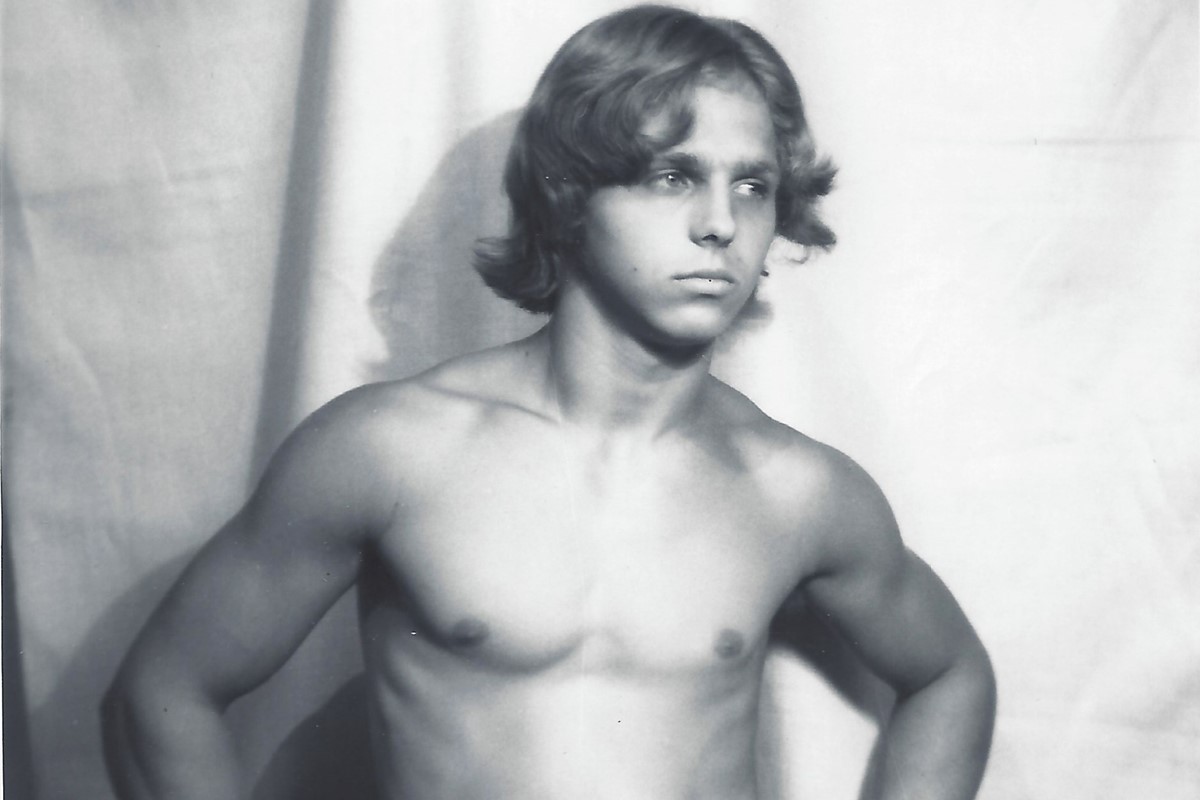
© » ANOTHER
The West Hollywood Artist Who Immortalised LA’s Golden Boys | AnOther A new exhibition in New York showcases the work of Kenneth Kendall, an artist who sculpted James Dean, Marlon Brando and more in the bohemian atmosphere of late 20th-century Los Angeles February 06, 2024 Text Miss Rosen Back in the 1950s, Hollywood’s fabled Melrose Avenue was still a sleepy street home to cabinetmakers and print shops catering to the local community...

© » KADIST
Kaoru Arima
2015Arima’s free brushstrokes gesture towards traditions in Expressionist painting, and Ticket could be seen as an attempt at “pure painting” in which the aesthetics of the medium supersede content...

© » SOUTH CHINA MORNING POST
Floral art by Andy Warhol, Pablo Picasso, Claude Monet and other artists on display at private Deji Art Museum in Nanjing, China | South China Morning Post Advertisement Advertisement Art + FOLLOW Get more with my NEWS A personalised news feed of stories that matter to you Learn more The exhibition ‘Nothing Still About Still Lifes: Three Centuries of Floral Compositions’ at Nanjing;s Deji Art Museum features more than 100 modern and contemporary artworks, including (above) “Les Amoureux au Bouquet de Fleurs” (1935-1937), by Marc Chagall...

© » TWOCOATSOFPAINT
Mary Jones: Layered histories – Two Coats of Paint Mary Jones, American Interior 2023, oil on digitally printed canvas, 52 x 38 inches Contributed by Katy Crowe / “Significant Properties,” the title of Mary Jones’s current exhibition at as-is.la and her first in Los Angeles in some years, aptly suggests real estate worth seeing...

© » KADIST
Prabhakar Pachpute
2020Calling attention to campaigns for land rights, survival, and sovereignty, Prabhakar Pachpute’s recent works consider how farmers in India use their bodies in performative ways during acts of protest...

© » SLASH PARIS
Hommage à Vera Molnar — Cruciformes — MAC VAL Musée d'art contemporain du Val-de-Marne — Exhibition — Slash Paris Login Newsletter Twitter Facebook Hommage à Vera Molnar — Cruciformes — MAC VAL Musée d'art contemporain du Val-de-Marne — Exhibition — Slash Paris English Français Home Events Artists Venues Magazine Videos Back Previous Next Hommage à Vera Molnar — Cruciformes Exhibition Mixed media Vue de l’exposition Cruciformes — Hommage à Vera Molnar , MAC VAL 2024 Photo © Aurélien Mole Hommage à Vera Molnar Cruciformes Ends in about 2 months: January 5 → April 8, 2024 Le 5 janvier 2024, Vera Molnar aurait eu cent ans...
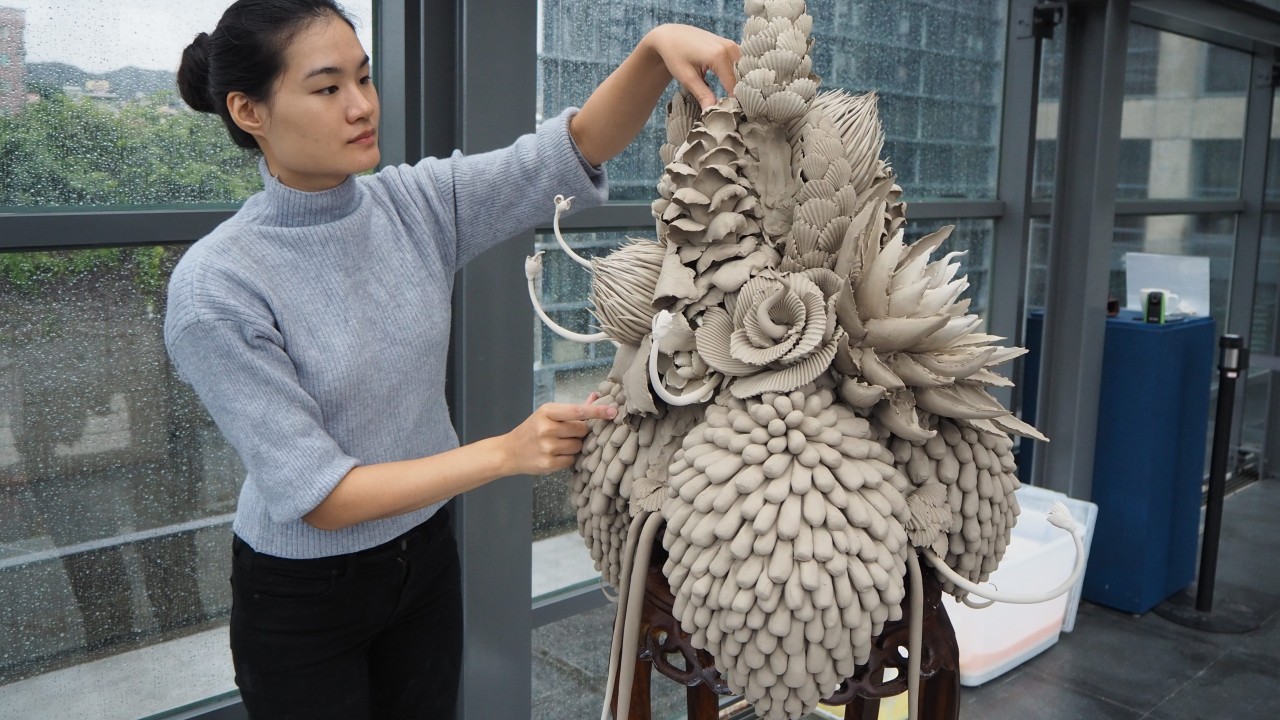
© » SOUTH CHINA MORNING POST
Why these ephemeral clay artworks by ceramicist Ruth Ju-shih Li will crumble in front of your eyes | South China Morning Post Advertisement Advertisement Art + FOLLOW Get more with my NEWS A personalised news feed of stories that matter to you Learn more Taiwanese-Australian ceramicist Ruth Ju-shih Li installs an ephemeral clay artwork at the New Taipei City Yingge Ceramics Museum, in Taiwan, in 2019...

© » SLASH PARIS
Hommage à Vera Molnar — Cruciformes — MAC VAL Musée d'art contemporain du Val-de-Marne — Exposition — Slash Paris Connexion Newsletter Twitter Facebook Hommage à Vera Molnar — Cruciformes — MAC VAL Musée d'art contemporain du Val-de-Marne — Exposition — Slash Paris Français English Accueil Événements Artistes Lieux Magazine Vidéos Retour Précédent Suivant Hommage à Vera Molnar — Cruciformes Exposition Techniques mixtes Vue de l’exposition Cruciformes — Hommage à Vera Molnar , MAC VAL 2024 Photo © Aurélien Mole Hommage à Vera Molnar Cruciformes Encore environ 2 mois : 5 janvier → 8 avril 2024 Le 5 janvier 2024, Vera Molnar aurait eu cent ans...


